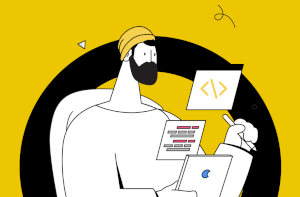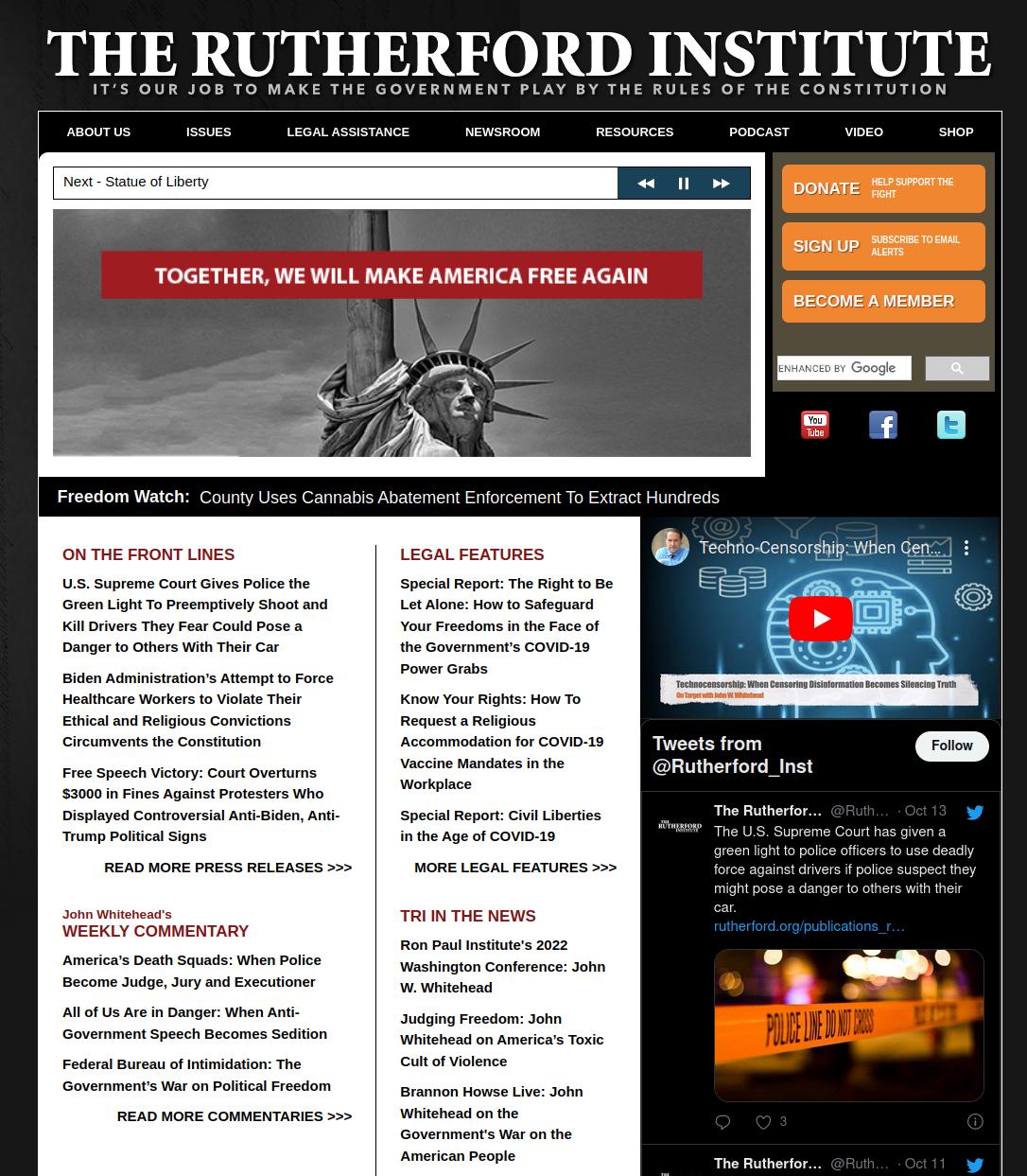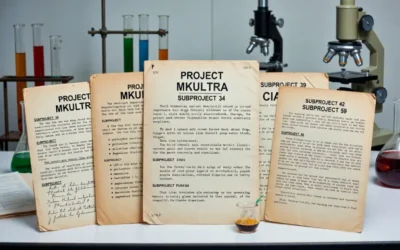By John Whitehead – Source Article
Where do we fit in? Do we have any say in what happens in our nation? Can we write our own ending? Or are we nothing more than actors in a play whose ending has already been determined? I, for one, believe that as long as there is a spark of freedom left, there is hope. As the poet Charles Bukowski writes, “a spark can set a whole forest on fire.” Our country may be in deep trouble, but there is still something that can be done to remedy the problems. It is understandable that many Americans feel overwhelmed, powerless and discouraged in the face of the government’s expansive powers, unlimited resources and military might. Even so, that is no excuse for standing silently on the sidelines.
There is no better time to act than the present. Fear, apathy and escapism will not carry the day. It is within our power to make a difference and seek corrective measures. Yet it is not merely that we should make a difference. Rather, we are compelled—required, if you will—to attempt in a nonviolent way to make a difference. We must be willing, if need be, to stand and fight.
The old African proverb “even an ant can harm an elephant” speaks to the power of the people to stand against even the mightiest of opponents. The thick-skinned elephant is impervious to most insects and can trample countless ant colonies with its massive form. Yet a single ant will drive an elephant mad if it crawls into the elephant’s trunk. If a tiny ant can create such chaos by targeting this vulnerability, imagine what an army of ants—or a nation of dissenters—could achieve.
I should warn you, that there is no 10-step plan to revolution, no top-10 list of issues that must be challenged and no easy formula for success. As any activist can tell you, each situation is often completely without precedent. Nevertheless, the key to making a difference is in understanding that the first step begins with you. As Mahatma Gandhi said, “We need to be the change we wish to see in the world.”
What Can You Do?
While there is no “how to” book for taking a stand against the loss of our freedoms and effectively resisting authoritarianism, there are certain things that are common to every successful struggle.
1. Get educated. Before you can stand and fight, you must understand what you’re fighting for and what you will be going up against. Without knowledge, very little can be accomplished. Thus, you must know your rights. Take time to read the Constitution, something very few Americans have ever done. Study and understand history because the tales of those who seek power and those who resist them, as you will see, is an age-old one. The Declaration of Independence is a testament to this struggle and the revolutionary spirit that overcame tyranny. Understand the vital issues of the day so that you can be cognizant of the threats to freedom. Stay informed about current events and legislation by way of television, the Internet and a variety of newspapers.
2. Get involved. One of the most important contributions an individual citizen can make is to become actively involved in local community affairs, politics and legal battles. As the adage goes, “Think globally, act locally.” America was meant to be primarily a system of local governments, which is a far cry from the colossal federal bureaucracy we have today. Yet if our freedoms are to be restored, understanding what is transpiring practically in your own backyard—in one’s home, neighborhood, school district, town council—and taking action at that local level must be the starting point. Responding to unmet local needs and reacting to injustices is what grassroots activism is all about. Getting involved in local politics is one way to bring about change. This could mean running for office, attending and becoming actively involved in party conventions where grass-roots decisions are made or serving on various commissions or political committees. I have seen instances where one person sitting on a local city council or zoning commission tipped the balance on crucial issues.
Short of running for office, personal contact with your local, state and public officials is vital. Seek out opportunities to voice your concerns and call on your government representatives to account for their actions. Call, write letters, sign petitions, visit their offices—do whatever it takes to get their attention and remind them that they are your representative and, thus, accountable to you. In all my years of working with various members of Congress, it has never ceased to amaze me how little input these men and women receive from the average citizen before casting their vote on legislation that will inevitably impact their constituents. One of the most powerful tools available to the individual, and individuals organized as a group, is the ballot box. If your representatives do not heed your advice on the central issues, then work to unseat them. This may involve running your own candidate. In this way, the ordinary citizen can affect the political process. Do not, however, make the mistake of thinking that politics is the only avenue for enacting change. Sometimes, you will need to take direct action rather than waiting on the bureaucrats to make a move. For example, establish a soup kitchen or shelter to help the poor. Start a recycling and street clean-up program to address problems with pollution and waste management.
3. Get organized. In going up against a more powerful adversary, it is critical that you understand your strengths and weaknesses and tap into your resources. Remember the analogy of the elephant and the ant: you can overcome the behemoth with enough cunning, skill and organization. Play to your strengths and assets. Conduct strategy sessions to develop both the methods and ways to attack the elephant. Prioritize your issues and battles. Don’t limit yourself to protests and paper petitions. Think outside the box. Time is short, and resources are limited, so use your resources in the way they count the most.
4. Be creative. Be bold and imaginative, for this is guerilla warfare—not to be fought with tanks and guns but through creative methods of dissent and resistance. Creatively responding to circumstances will often be one of your few resources if you are to be an effective agent of change. Every creative effort, no matter how small, is significant. As Jason Salzman points out in his book Making the News, “you need to nurture a war-room attitude, infused with creativity.” Salzman asks,
Would you dress in a pink ostrich costume and tell politicians to get their heads out of the sand? Or, if you were kicked out of a mall for breast-feeding, would you fight back and stage a “breast-feed-in” with forty nursing moms—and the media—in tow?…. If you opposed the Iraq war, would you find forty-nine other people, strip naked, and spell “peace” with your bodies? Would you deliver manure to politicians and tell them they are full of !!**@??!!.”
You might be hesitant to do such things, but others, as you will see, were not. They succeeded in getting their point across when more traditional methods might have been less effective. This is what it means to think outside of the box. Even with limited resources, such creative acts will not only get people’s attention, they will also attract the media’s attention and help you get your message to a larger audience. “The most imaginative and theatrical people are going to win,” remarked Colin Covert, a feature reporter at the Star Tribune in Minneapolis. “Don’t expect good intentions to get you space. The fact that you’re trying to fight cancer is great, but it’s not news. If you do something interesting, we’ll write about it.”
5. Use the media. Effective use of the media is essential. Attracting media coverage not only enhances and magnifies your efforts, it is also a valuable education tool. It publicizes your message to a much wider audience. It is through the media—television, newspapers, Internet sites, bloggers and so on—that people find out about your growing resistance movement. Media coverage also alerts the people to many issues they may not otherwise know about. As Salzman notes, “Successful media campaigns are, above all else, entertaining. That doesn’t necessarily mean amusing. In fact, some successful media campaigns are disgusting. But whether amusing or disgusting—they are engaging, and that is the key synonym for entertainment in the news business.”
Examples abound of individuals who use creative methods to raise awareness and get their message heard. For instance, it was New York’s Working Families Party that dressed an activist as an ostrich to illustrate how various politicians have their “heads in the sand” over various issues such as the economy. Hoping to raise awareness about the unfairness of their high utility bills, residents of a semi-rural area in Oregon attempted to pay their bills in pennies, chickens and the shirts off their backs. A local TV station caught it on film. The Coalition to Stop Gun Violence generated national coverage when it assembled 40,000 pairs of shoes of citizens killed by guns on the National Mall in Washington, D.C. An ordinary rally might not have been half as effective. In these ways, as Salzman rightly notes, activists move “social ills from behind locked doors into the public domain—into our communal backyard.”
6. Start brushfires for freedom. Take heart that you are not alone. You come from a long, historic line of individuals who have put their beliefs and lives on the line to keep freedom alive. What’s more, recognize that you don’t have to go it alone. Engage those around you in discussions about issues of importance. Challenge them to be part of a national dialogue. As I have often said, one person at a city planning meeting with a protest sign is an irritant. Three individuals at the same meeting with the same sign are a movement. You will find that those in power fear and respect numbers. This is not to say that lone crusaders are not important. There are times when you will find yourself totally alone in the stand you take. However, an army of ants creates the impression that not only are you not alone, but that something bigger is involved. There is power in numbers. Politicians understand this. So get out there and start drumming up support for your cause.
7. Take action. Be prepared to mobilize at a moment’s notice. It doesn’t matter who you are, where you’re located or what resources are at your disposal. What matters is that you recognize the problems and care enough to do something about them. Whether you’re 8, 28 or 88 years old, you have something unique to contribute. Radford Lyons certainly did his part to raise awareness about contaminated well water in Pike County, Kentucky. Appearing at a public hearing where a debate was underway over extending water lines out to homes in an area of contaminated wells, the 8-year-old pressed the point home when he offered hearing officials free lemonade made from the contaminated well water. By the end of the hearing, one official had promised to have the lines constructed. As young Radford proved, you don’t have to be a hero. You just have to show up and be ready to take action.
8. Be forward-looking. Beware of being so “in the moment” that you neglect to think of the bigger picture. Develop a vision for the future. Is what you’re hoping to achieve enduring? Have you developed a plan to continue to educate others about the problems you’re hoping to tackle and ensure that others will continue in your stead? Take the time to impart the value of freedom to younger generations, for they will be at the vanguard of these battles someday.
9. Develop fortitude. What is it that led to the successful protest movements of the past headed by people such as Martin Luther King? Resolve. King refused to be put off. And when the time came, he was willing to take to the streets for what he believed and even go to jail if necessary. King risked having an arrest record by committing acts of nonviolent civil disobedience. That’s how much Martin Luther King cared about his fellow human beings. He was willing to sacrifice himself. But first, he had to develop the intestinal fortitude to give him the strength to stand and fight. If you decide that you don’t have the requisite fortitude, find someone who does and back them. A caveat is appropriate here. Before resorting to nonviolent civil disobedience, all reasonable alternatives should be exhausted. If there is an opportunity to alter the course of events through normal channels (for example, negotiation, legal action or legislation), they should be attempted.
10. Be selfless and sacrificial. Freedom is not free—there is always a price to be paid and a sacrifice to be made. If any movement is to be truly successful, it must be manned by individuals who seek a greater good and do not waver from their purposes. It will take boldness, courage and great sacrifice. Rarely will fame, power and riches be found at the end of this particular road. Those who travel it inevitably find the way marked by hardship, persecution and strife. Yet there is no easy way. As the abolitionist Frederick Douglass remarked in an 1857 speech:
The whole history of the progress of human liberty shows that all concessions yet made to her august claims have been born of earnest struggle. The conflict has been exciting, agitating, all-absorbing, and for the time being, putting all other tumults to silence. It must do this or it does nothing. If there is no struggle there is no progress. Those who profess to favor freedom and yet deprecate agitation are men who want crops without plowing up the ground; they want rain without thunder and lightning. They want the ocean without the awful roar of its many waters. This struggle may be a moral one, or it may be a physical one, and it may be both moral and physical, but it must be a struggle. Power concedes nothing without a demand. It never did and it never will.
11. Remain optimistic and keep hope alive. Although our rights are increasingly coming under attack, we still have certain freedoms. We can still fight back. We have the right to dissent, to protest and even to vigorously criticize or oppose the government and its laws. The Constitution guarantees us these rights. In a country such as the United States, a citizen armed with a knowledge of the Bill of Rights and the fortitude to stand and fight can be that single ant that overcomes the elephant. But it will mean speaking out when others are silent.
It won’t be easy, but take heart. And don’t give up. Practice persistence, along with perseverance, and the possibilities are endless. You can be the voice of reason. Use your voice to encourage others. Much can be accomplished by merely speaking out. Oftentimes, all it takes is one lone voice to get things started. So if you really care and you’re serious and want to help change things for the better, dust off your First Amendment tools and take a stand—even if it means being ostracized by those who would otherwise support you.
Source: https://www.rutherford.org/constitutional_corner/citizens_toolbox_what_you_can_do_to_save_america






0 Comments